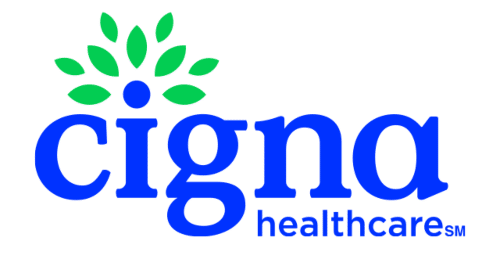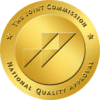In the complex realm of drug and substance use, distinguishing between a habit and an addiction is essential for understanding the nature of one’s relationship with substances. This differentiation is more than just academic; it’s a crucial aspect of identifying the appropriate approach to treatment and support.
Through this exploration, we aim to provide insights and guidance that can lead individuals toward making informed decisions about their health and well-being, particularly when navigating the challenging waters of substance use and dependency.
Understanding Habits: The Good, the Bad, and the Neutral
Habits, in essence, are the brain’s way of saving effort. By automating frequent actions, our minds free up resources to focus on other tasks. This can be as mundane as tying shoelaces or as significant as a daily meditation practice. Habits form through a cycle of cue, routine, and reward. Over time, this cycle becomes so ingrained that we perform the habit without conscious thought.
Not all habits are created equal. Positive habits can enhance our health, productivity, and happiness. Negative habits, while not devastating, can hinder our progress and well-being. The key to managing habits lies in mindfulness and intentionality. Recognizing the cues and rewards that drive our habits provides us the power to change them. With patience and persistence, even deeply entrenched habits can be reshaped into ones that serve us better.
Addiction: A Deeper Struggle
According to the National Institute on Drug Abuse, “Addiction is defined as a chronic, relapsing disorder characterized by compulsive drug seeking and use despite adverse consequences.” Addiction transcends the habitual realm, embedding itself deeply within the brain’s circuitry. It’s characterized by compulsive behavior that persists despite harmful consequences. The hallmark of addiction is not just a desire for a rewarding experience but a dependency that interferes with everyday functioning.
The journey into addiction often begins innocuously, with the behavior or substance providing a perceived benefit or relief. However, as the addiction develops, changes occur in the brain’s structure and function, leading to an insatiable need. This need can overshadow all else, driving individuals to forsake hobbies, relationships, and responsibilities.
The Spectrum of Substance Use to Addiction
The path from substance use to substance abuse can be subtle and insidious. It often starts with a drug, alcohol, or any addictive substance being used casually or socially. Substance use disorder is a critical stage where use becomes a harmful habit, signaling the need for intervention. Understanding this spectrum is essential in recognizing when substance addictions, including alcohol and drug addiction, escalate from unhealthy habits to profound health issues. Treatment options are available, offering a beacon of hope for those ready to confront their addiction.
Understanding Cravings and Compulsion
Intense craving and compulsion are hallmarks of addiction, distinguishing it from mere habits. Craving a substance or activity can lead to repetitive behaviors that become central to one’s daily routine, far beyond a bad habit or a negative habit. Recognizing the difference is crucial for individuals to identify when they are dealing with addiction rather than routine behavior or unwanted habits.
The Role of Mental Health in Addiction
Mental health is deeply intertwined with addiction, often serving as both a precursor and a consequence of substance use disorders and drug abuse. Addressing mental health through cognitive behavioral therapy and other treatments is a cornerstone of addiction recovery, highlighting the importance of holistic approaches in the journey toward healing.
The Critical Distinctions: Habit vs Addiction
While habits and addictions may share the feature of regular engagement, the differences between them are profound:
- Control vs. Compulsion: Habits, even stubborn ones, are within our power to change with enough effort and strategy. Addiction, however, usurps this control, leading to compulsive behaviors that defy rational decision-making.
- Impact on Daily Life: Negative habits can be irritating or mildly detrimental, but addictions disrupt life’s balance, often resulting in significant personal, professional, and health consequences.
- The Role of Tolerance and Withdrawal: Unlike habits, addictions often escalate, requiring more of the substance or behavior to achieve the same effect. Moreover, stopping the addictive behavior can lead to withdrawal symptoms, a physical manifestation of dependency that doesn’t occur with mere habits.
The Path to Recovery: Treatment and Support
Addiction recovery is a multifaceted process involving various treatment options, including cognitive behavioral therapy, which can help individuals understand their habit formation and develop healthier coping mechanisms. Addiction specialists and treatment centers play a vital role in providing support and guidance for those affected by drug abuse and substance addictions. Recovery is seen as a journey rather than a destination, acknowledging addiction as a chronic disease that requires ongoing management.
The Power of Positive Habits in Recovery
Fostering healthy habits is crucial in addiction recovery. Good habits, such as regular exercise, meditation, and healthy eating, can significantly support the healing process, offering alternatives to unhealthy habits and helping individuals rebuild their lives post-addiction. These positive habits are the foundation of a balanced life, crucial for long-term recovery and relapse prevention
Recognizing When to Seek Help
Identifying when a habit crosses into the territory of addiction is pivotal for seeking timely support. Questions to ask include: Does this behavior dominate my thoughts? Have I repeatedly tried and failed to stop? Is this behavior harming my health, relationships, or quality of life?
Overcome Addiction
Understanding the nuances of “habit vs addiction” empowers individuals to assess their behaviors better and recognize when intervention is needed. Whether you’re grappling with a challenging habit or confronting an addiction, it’s important to know that pathways to change and recovery exist.
If you or someone you love is struggling with drug addiction, get in touch with Safe and Sound Treatment. Our treatment facility is dedicated to providing individuals with an encouraging environment where they can overcome the challenges of addiction.
FAQs
Yes, a habit can evolve into an addiction if it starts to fulfill a psychological need and becomes compulsive, leading to significant negative consequences.
Evaluate the level of control you have over the behavior, its impact on your life, and whether you experience withdrawal symptoms when not engaging in the behavior. If your life is significantly impaired or you feel powerless to stop, it may be an addiction.
No, addictions can also be behavioral, involving activities like gambling, shopping, internet use, or eating, which can become compulsive and harmful.
Reach out for professional help. Addiction treatment centers provide the resources and support necessary for recovery, offering personalized care to address both the addiction and its underlying causes.


















